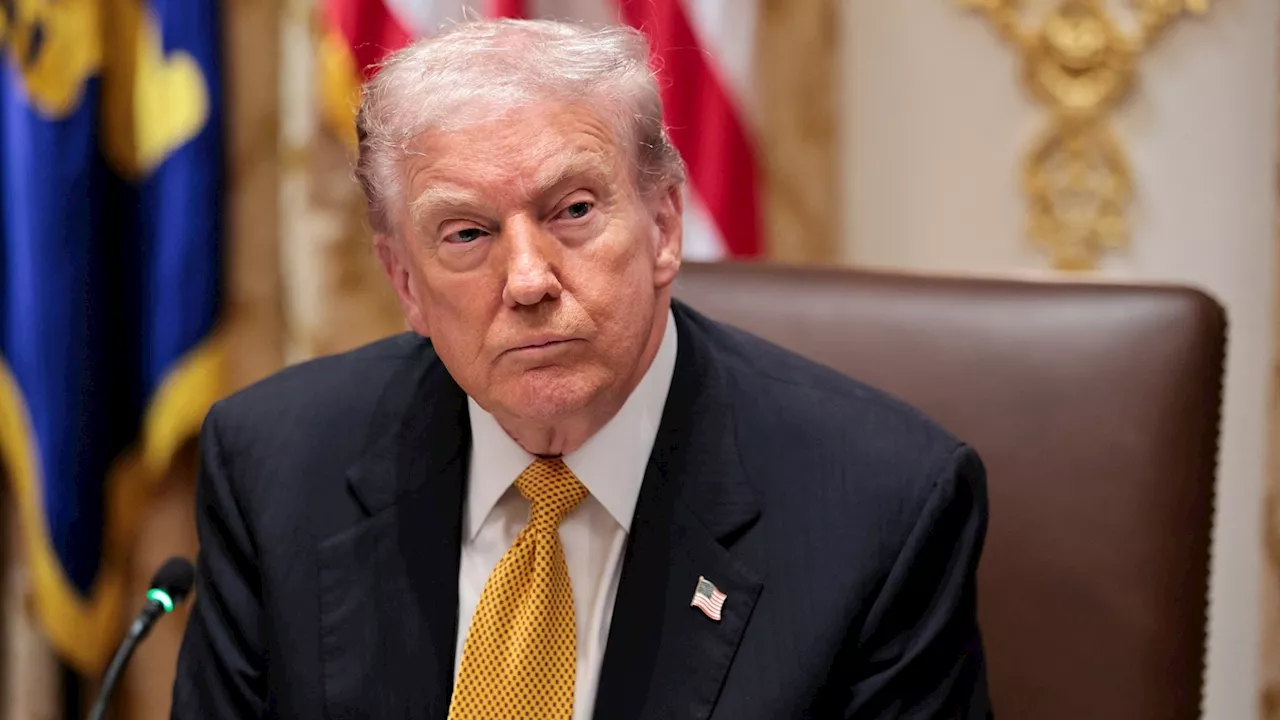Politics
Trump Administration Appeals Court Order on SNAP Funding Amid Shutdown

The Trump administration is appealing a federal judge’s order requiring full funding for the Supplemental Nutrition Assistance Program (SNAP) for November 2025. This appeal comes during an ongoing government shutdown, which has raised concerns about food security for millions of low-income Americans. The administration’s position asserts that complying with the court order would cause greater harm to the government than the potential hunger faced by those reliant on SNAP benefits.
In a filing to the 1st Circuit Court of Appeals, the Justice Department stated that the district court’s directive poses “significant and irreparable harm” to the federal government. The argument hinges on the idea that the government would sustain a more severe injury by being required to disburse funds than low-income individuals would face by potentially losing access to food assistance.
During a bilateral lunch at the White House on November 7, 2025, President Donald Trump hosted Hungary’s Prime Minister Viktor Orban, amidst the political backdrop of this legal battle. The administration filed an emergency stay request with the Supreme Court on the same night, echoing its earlier claims that the judiciary is overstepping its bounds by ordering the executive branch to allocate funds.
Judge John J. McConnell Jr. from Rhode Island has ordered the government twice to tap into its existing accounts to fulfill the SNAP funding gap. Yet, the administration has contested these rulings, arguing they infringe upon Congress’s spending authority. The Justice Department’s recent filings have highlighted this conflict, asserting that the judge’s injunction undermines the principle of separation of powers and accuses the judiciary of interfering in ongoing budget negotiations.
The SNAP program is crucial, providing monthly benefits to approximately 42 million Americans. The ongoing government shutdown prompted the U.S. Department of Agriculture (USDA) to announce it would only partially fund SNAP payments for November, leading to lawsuits from various entities, including cities and nonprofit organizations. These groups argue that the administration is neglecting its legal obligation to provide full benefits.
The government’s insistence that it cannot find the funds necessary to sustain SNAP during this period is challenged by the fact that the USDA controls multiple accounts with sufficient reserves, including a $5 billion emergency fund established by Congress for such situations. Critics argue that the issue is not one of fiscal incapacity, but rather a political decision to withhold those funds.
Throughout its appeal, the administration’s legal strategy presents an ideological stance that prioritizes administrative convenience over the pressing needs of vulnerable populations. If successful, this argument could set a concerning precedent, suggesting that any judicial order requiring government action could be dismissed under claims of “irreparable harm.”
Judge McConnell expressed strong disapproval of this stance, stating, “This should never happen in America,” highlighting the moral implications of allowing citizens to go hungry while the government cites poverty amidst available reserves.
As the situation unfolds, the future of SNAP funding remains uncertain, impacting millions who rely on this essential program for their daily sustenance. The outcome of these legal challenges will have significant implications for the balance of power between the judicial and executive branches, as well as for the lives of those dependent on federal assistance.
-

 Politics2 weeks ago
Politics2 weeks agoHamas Chief Stresses Disarmament Tied to Occupation’s End
-

 Science2 weeks ago
Science2 weeks agoOhio State Study Uncovers Brain Connectivity and Function Links
-

 Entertainment2 weeks ago
Entertainment2 weeks agoMegan Thee Stallion Exposes Alleged Online Attack by Bots
-

 Science3 weeks ago
Science3 weeks agoResearchers Challenge 200-Year-Old Physics Principle with Atomic Engines
-

 Top Stories2 weeks ago
Top Stories2 weeks agoFederal Agents Detain Driver in Addison; Protests Erupt Immediately
-

 Entertainment2 weeks ago
Entertainment2 weeks agoPaloma Elsesser Shines at LA Event with Iconic Slicked-Back Bun
-

 Business2 weeks ago
Business2 weeks agoHome Depot Slashes Prices on Halloween Favorites Up to 75%
-

 Top Stories2 weeks ago
Top Stories2 weeks agoOrioles Hire Craig Albernaz as New Manager Amid Rebuild
-

 Entertainment2 weeks ago
Entertainment2 weeks agoSyracuse Stage Delivers Lively Adaptation of ‘The 39 Steps’
-

 Top Stories2 weeks ago
Top Stories2 weeks agoWill Smith Powers Dodgers to World Series Tie with Key Homer
-

 World3 weeks ago
World3 weeks agoGlobal Military Spending: Air Forces Ranked by Budget and Capability
-

 Politics3 weeks ago
Politics3 weeks agoNHP Foundation Secures Land for 158 Affordable Apartments in Denver









